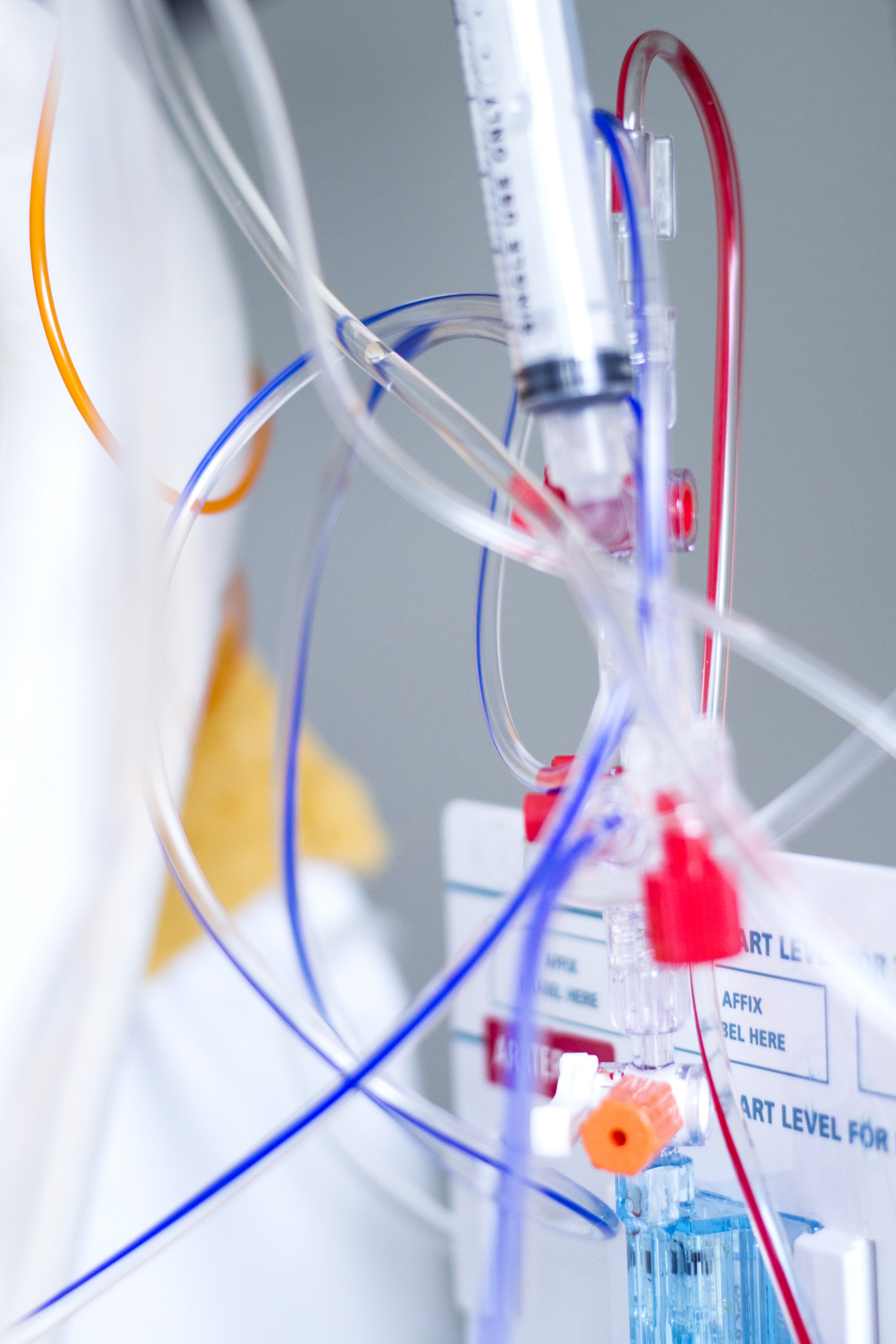
Episode Transcript
Interviewer: Sepsis. What is it, how do you get it, and what should you do about it? That's next on The Scope.
Announcer: This is From the Front Lines with emergency room physician Dr. Troy Madsen, on The Scope.
Interviewer: Dr. Troy Madsen's an emergency room physician. I wanted to learn a little bit about sepsis today. What exactly is sepsis? Let's start there.
Dr. Madsen: Well, sepsis is, you know, a word you may have heard, but the best way to think about sepsis is it's just an infection that started somewhere, either in the lungs or the urine or on the skin, like a urinary infection, a skin infection, that then works its way through the entire body. So it's basically just a full-blown form of stuff that otherwise might not seem like that big a deal, that you could just take some antibiotics for.
Interviewer: All right, so a localized infection is not sepsis?
Dr. Madsen: No.
Interviewer: It's when that infection somehow gets into the bloodstream. How common is that that that's going to happen?
Dr. Madsen: It's not super common. It's more common in people who are older who have immune system problems. That's where we often see cases. But I mean, I've absolutely seen people who have come in with urinary tract infections, young, healthy females, who it works it way up to their kidneys. From there, you start to see the effects throughout their body.
And really, the effects we're looking for to call it sepsis are high temperature, so they're coming with a fever, they're breathing rapidly, their heart rate is going fast. We check blood work on them. Their white blood cell count, which is a sign of infection more throughout the body, is elevated. And then, sometimes in severe sepsis, their blood pressure even drops, just because that severe infection can cause the blood vessels to dilate. So that blood pressure's going to drop, and that's where it gets really serious.
Interviewer: So it could happen to anybody, even if you're healthy, more likely if you have a compromised immune system. Something to avoid, nonetheless. Are there ways to avoid getting sepsis?
Dr. Madsen: So really, the key to avoiding sepsis is to catch infections early. If you look at your arm, it looks like you have a skin infection. Let's say you have an area of a lot of redness, warmth. You touch it, you just say, "Wow, this is really hot here." You need to get on some antibiotics, because those are the things that can then progress to sepsis as that infection spreads. You're having urinary tract symptoms.
The times I see these cases of sepsis are people who might let it go for a couple of days, and then it works its way up. They start having back pain, fevers. That's when it becomes urosepsis, so starting from the urine and then that infection working its way through the body. Or pneumonia, the other common thing, people who are coughing a lot, high fevers. Things get much worse there. So if you can catch these things early, get on antibiotics, you can generally avoid that really severe form of the infection that we call sepsis.
Interviewer: All right, and if sepsis does kick in, what's the treatment for that?
Dr. Madsen: So sepsis, it requires hospitalization. So in these patients, and we've done a lot of studies in the ER, how do we best treat these patients, but the key is getting on top of it early. And what that means is getting IVs in, giving fluids. Just because people can be very dehydrated, they can have a lot of fluid loss from this. And then getting antibiotics early. I'm going to start antibiotics very early on these patients who come in who are septic and admit them to the hospital, often admitted for several days on IV antibiotics while trying to figure out exactly what caused the sepsis and making sure it's treated appropriately.
Interviewer: And why the long-term hospitalization on that? Why not just give antibiotics and let them treat it at home?
Dr. Madsen: Well, one of the challenges, they often need additional IV fluids, and they often need that IV form of antibiotics. Some of the IV forms are much stronger than what we could give at home, and so that's why they're in the hospital, monitoring them. This can be a life-threatening condition. I mean, some studies that were done on sepsis several years ago even showed that, you know, in these cases, they were finding 30% of patients with sepsis were dying. Maybe it's not that high now. I'm sure it's not now that we've improved our care, but this is a big deal. So these patients are often admitted and for several days.
Interviewer: So to me, it sounds like, if you experience some sort of an infection, especially some of the ones that you mentioned, that you should get on top of that and treat that so the sepsis doesn't ever become a problem. But then, if the symptoms start happening, you absolutely need to go to the hospital.
Dr. Madsen: Exactly. Once you get fevers, chills, you know, just things getting much worse, the back pain, like an infection in the kidney, just a cough that is just not getting better and you're bringing stuff up, lots of phlegm, yeah, get to the ER. This may be something more serious that requires some IV antibiotics.
Announcer: Want The Scope delivered straight to your inbox? Enter your email address at thescoperadio.com and click "Sign Me Up" for updates of our latest episodes. The Scope Radio is a production of University of Utah Health Sciences.